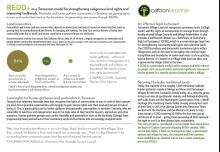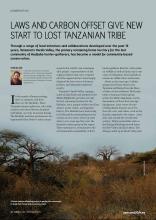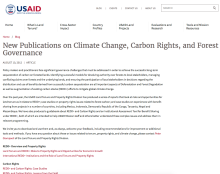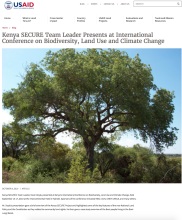Land Library
Welcome to the Land Portal Library. Explore our vast collection of open-access resources (over 74,000) including reports, journal articles, research papers, peer-reviewed publications, legal documents, videos and much more.
/ library resources
Showing items 1 through 9 of 9.Pastoralist and hunter-gatherer communities in Tanzania are gaining rights to own and control their land as the foundation for generating new income through REDD+
Through a range of local initiatives and collaborations developed over the past 15 years, Tanzania’s Yaeda Valley, the primary remaining home territory for the last community of Hadzabe hunter-gatherers, has become a model for community-based conservation.
Guest commentary by Robert Primmer, Land Tenure and Climate Change Specialist, Evaluation, Research, and Communication (ERC) Project.
A guest post by Robert Oberndorf, Resource Law Specialist, Tenure and Global Climate Change Project
This issue brief presents an overview of REDD+ and the associated tenure and property rights challenges and opportunities.
Spanish Translation
Release Date: Wednesday, April 17, 2013File: Land Tenure and REDD+: Risks to Property Rights and Opportunities for Economic Growth
According to AllAfrica.com, farmers in Liberia are blaming perceived climatic changes on the government’s policy of allocating large-scale concessions for mining, logging, and agriculture.
Policy makers and practitioners face significant governance challenges that must be addressed in order to achieve the successful long-term sequestration of carbon on forested lands.
In both climate change adaptation and mitigation, contentious struggles for access and control of resources may turn violent unless stakeholders from the local to the international scale engage in open and transparent processes to negotiate new rules of access to land and other natural resources.
Kenya SECURE’s Team Leader, Kevin Doyle, presented at Kenya’s International Conference on Biodiversity, Land Use and Climate Change, held September 15-17, 2010 at the Intercontinental Hotel in Nairobi. Sponsors of the conference included KWS, IUCN, UNEP, EAWLS, and many others.





